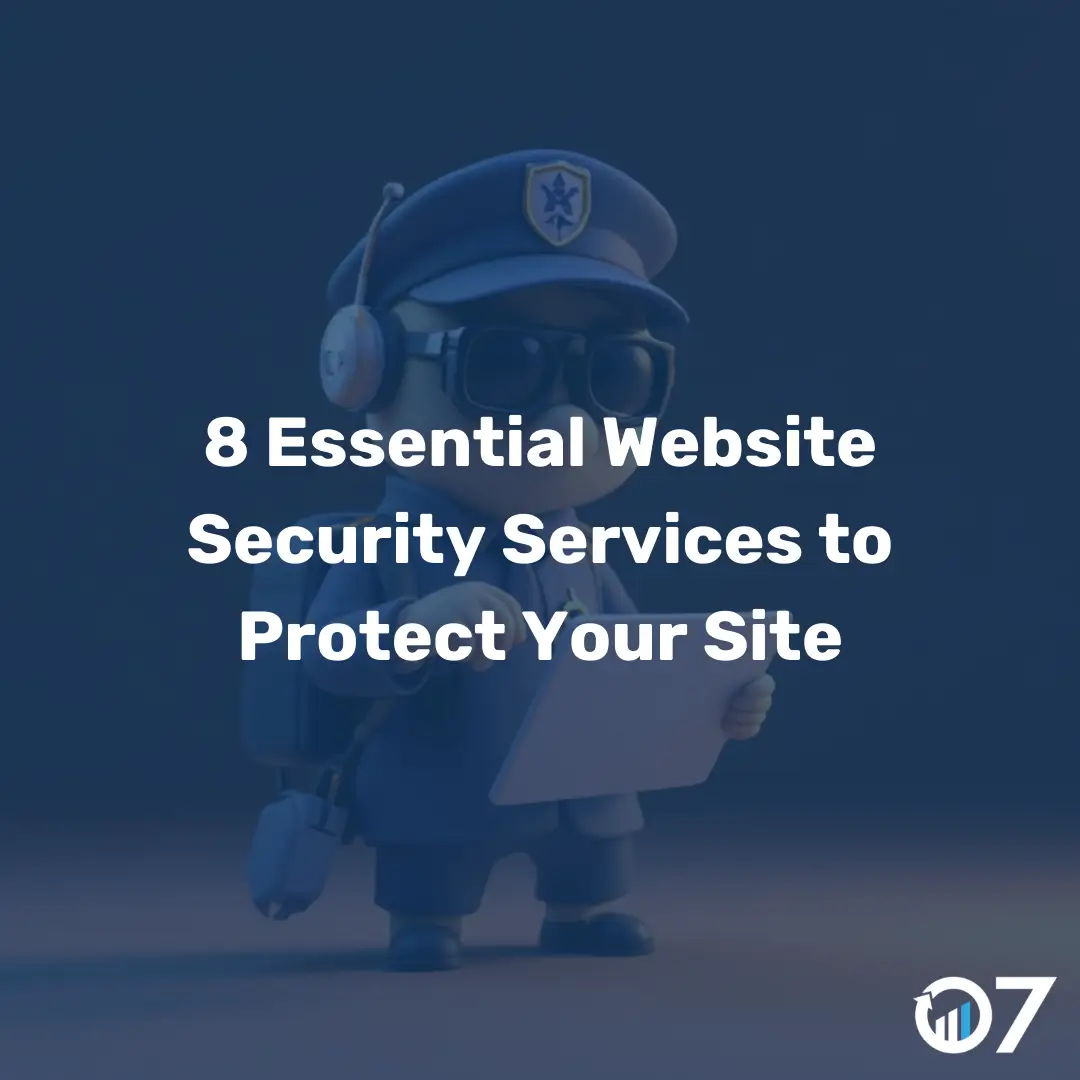Website security services are crucial for businesses looking to protect their online presence and customer data. In this article, we’ll explore eight essential services that can help you secure your site and maintain trust with your visitors.
Why Website Security is Important for Your Business
Like many people, I spend most of my day online. Whether for work, browsing, or making purchases, I trust that most sites have strong website security. The last thing I want to think about when visiting websites is whether or not my data is safe — and if I get the feeling it’s not secure, I quickly lose trust in the business (and get far away from the site).
For businesses, this loss of trust can translate into lost revenue and damaged reputation. Ensuring your website is secure is not just about protecting data; it’s about maintaining the confidence of your customers.
Common Website Security Threats
Before diving into the services that can enhance your website security, let’s look at some common threats:
1. Malware
Malware can infect your website and spread to your visitors, leading to potential data breaches and loss of sensitive information.
2. Phishing
Phishing attacks trick users into providing personal information by masquerading as a trustworthy entity.
3. DDoS Attacks
Distributed Denial of Service (DDoS) attacks overwhelm your website with traffic, causing it to crash and become unavailable to users.
4. SQL Injection
SQL injection attacks exploit vulnerabilities in your website’s database, allowing attackers to access and manipulate data.
5. Cross-Site Scripting (XSS)
XSS attacks inject malicious scripts into web pages viewed by users, potentially compromising user data and website functionality.
8 Essential Website Security Services
Now that we understand the threats, let’s explore the services that can help you protect your website:
1. SSL Certificates
SSL certificates encrypt data transmitted between your website and its users, ensuring that sensitive information remains secure. This is a must-have for any business handling personal data or transactions.
2. Web Application Firewalls (WAF)
A WAF monitors and filters incoming traffic to your website, blocking malicious requests and protecting against common threats like SQL injection and XSS attacks.
3. Regular Security Audits
Conducting regular security audits helps identify vulnerabilities in your website’s infrastructure. These audits can be performed by internal teams or external security experts.
4. Malware Scanning and Removal
Using malware scanning tools can help detect and remove malicious software from your website, preventing potential data breaches and damage to your reputation.
5. DDoS Protection
DDoS protection services help mitigate the impact of DDoS attacks by filtering out malicious traffic and ensuring your website remains accessible to legitimate users.
6. Secure Hosting
Choosing a secure hosting provider is crucial for maintaining website security. Look for providers that offer robust security features like firewalls, regular backups, and 24/7 monitoring.
7. Two-Factor Authentication (2FA)
Implementing 2FA adds an extra layer of security to your website by requiring users to verify their identity through a second method, such as a text message or authentication app.
8. Security Patches and Updates
Keeping your website’s software and plugins up to date is essential for protecting against known vulnerabilities. Regularly applying security patches helps prevent potential exploits.
How to Implement These Services
Implementing these services can seem daunting, but it’s essential for maintaining a secure website. Here are some steps to help you get started:
1. Assess Your Current Security
Begin by evaluating your current security measures. Identify any gaps and prioritize the services that will address your most pressing vulnerabilities.
2. Choose the Right Providers
Research and select reputable providers for the security services you need. Look for providers with a proven track record and positive reviews from other businesses.
3. Integrate Security Measures
Work with your IT team or external experts to integrate the chosen security measures into your website. Ensure that all services are properly configured and regularly monitored.
4. Educate Your Team
Ensure that your team is aware of the importance of website security and understands how to use the implemented services. Regular training can help prevent security breaches caused by human error.
Maintaining Ongoing Security
Website security is not a one-time task. It requires ongoing effort to stay ahead of emerging threats. Here are some tips for maintaining ongoing security:
1. Regularly Review and Update Security Measures
Continuously review and update your security measures to ensure they remain effective against new threats. Stay informed about the latest security trends and best practices.
2. Monitor Your Website
Regularly monitor your website for any signs of suspicious activity. Use monitoring tools to detect and respond to potential threats in real-time.
3. Backup Your Data
Regularly back up your website’s data to protect against data loss caused by security breaches or other issues. Ensure that backups are stored securely and can be easily restored if needed.
4. Engage with Security Experts
Consider partnering with security experts who can provide ongoing support and guidance. Their expertise can help you stay ahead of potential threats and maintain a secure website.
Conclusion
Investing in website security services is essential for protecting your business and maintaining the trust of your customers. By implementing the eight services discussed in this article, you can significantly enhance your website’s security and reduce the risk of online threats.
For more insights on website security and other marketing strategies, visit our blog or contact us via email at info@07hm.co.uk or telephone at 01702 410663.





